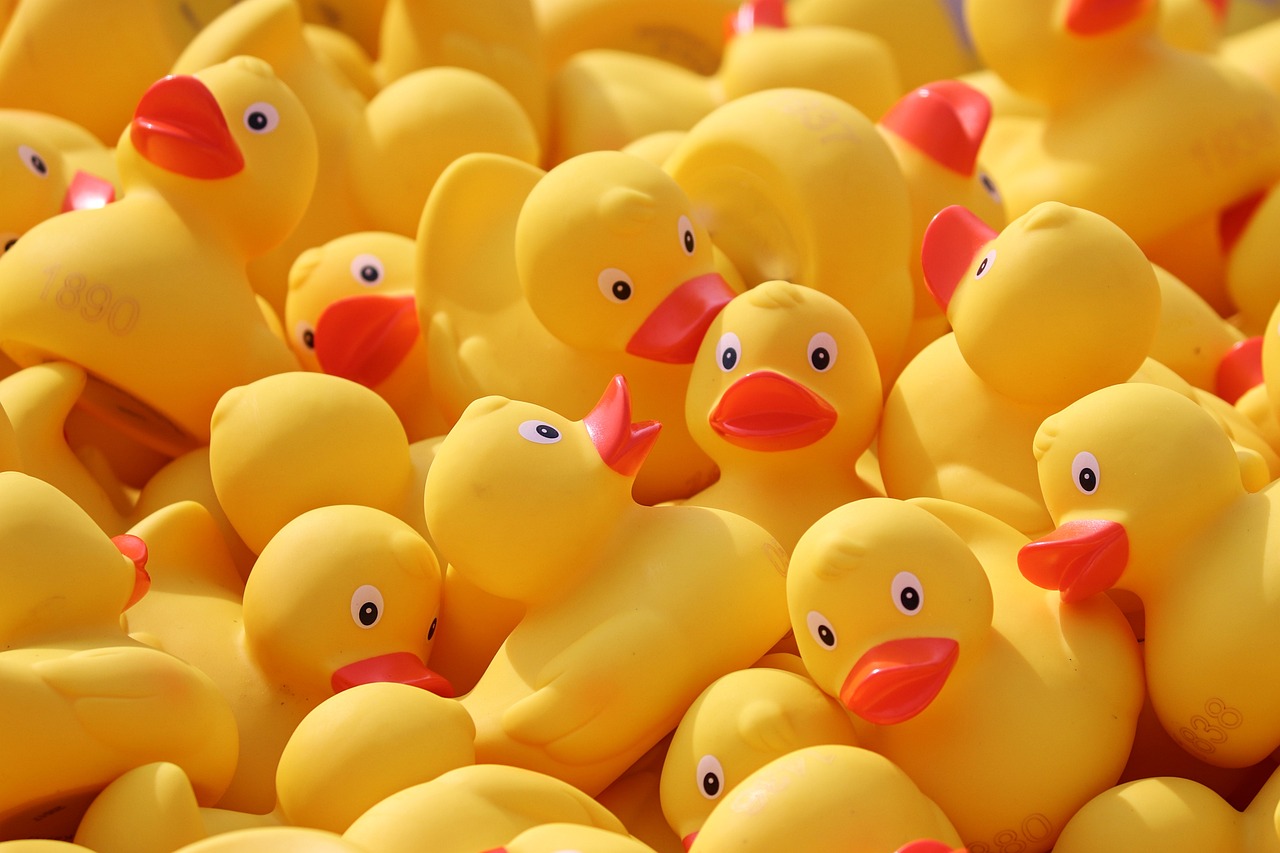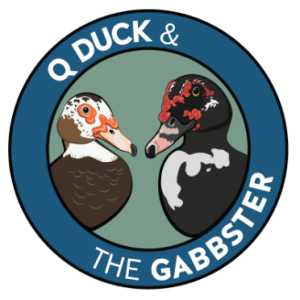The squeaking, floating “rubber duckie” we all know and love was originally a solid rubber chew toy, created in the late 1800s through Charles Goodyear’s vulcanization process that made rubber malleable. It wasn’t until the 1940s, however, that artist Peter Hanine created a duck sculpture, then reproduced it in plastic, that the modern form was born. Luckily, Hanine patented his “uncapsizeable duck” because it went on to sell over 50 million – and become Ernie from Sesame Street’s favorite toy.
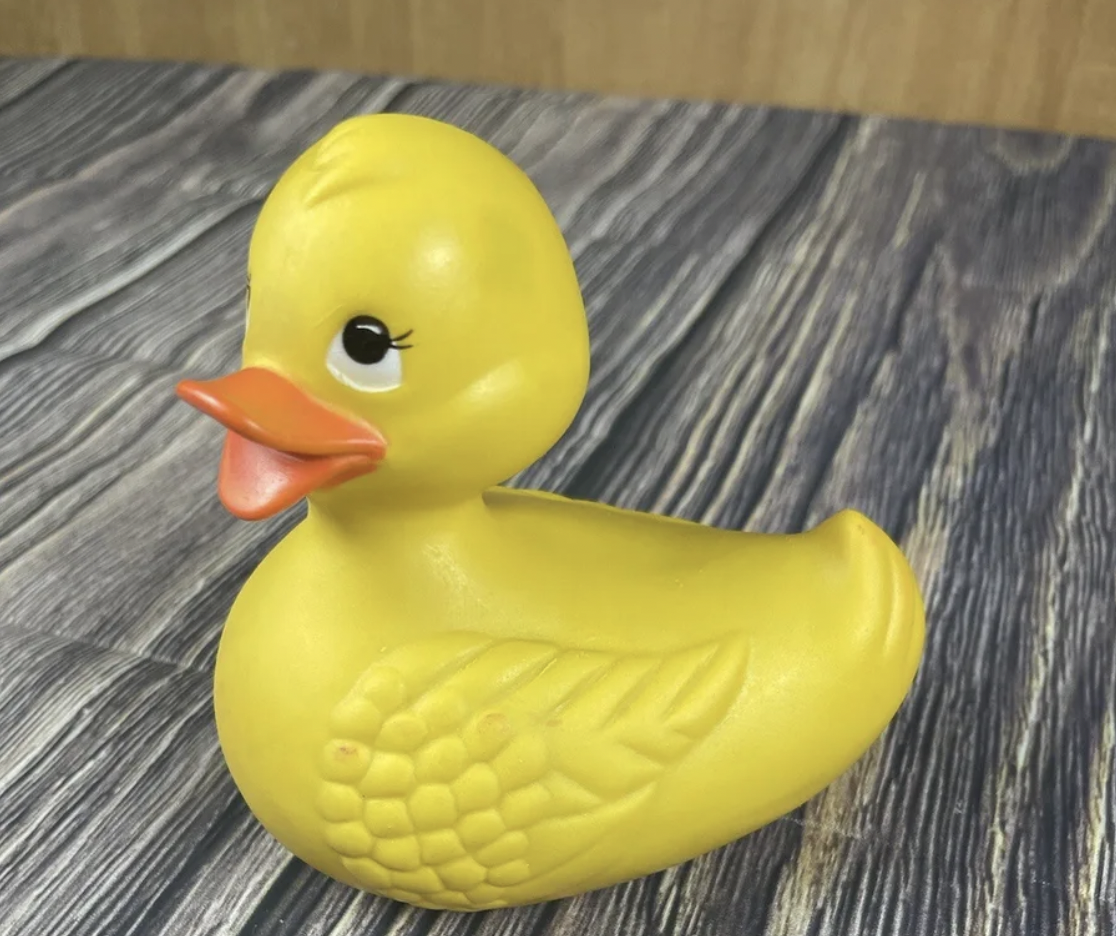
Many adults may remember the classic doe-eyed, tilted head pose of the Knickerbocker Toy Company’s rubber duck. Image via Ebay.
According to the Strong National Museum of Play – which inducted the traditional “rubber duck” in their National Toy Hall of Fame in 2013 – most rubber duck figurines are actually vinyl. And the classic toy now comes in a dizzying array of sizes, colors, and designs, celebrating every character, job, hobby, sport, and trend you can imagine, from zombie ducks to the pope. The duck is so iconic, a giant love-it-or-hate it floating sculpture has captivated harbors all over the world; inflatable ducks have even been used as symbols of protest in various cities, from Thailand to Russia to Brazil.
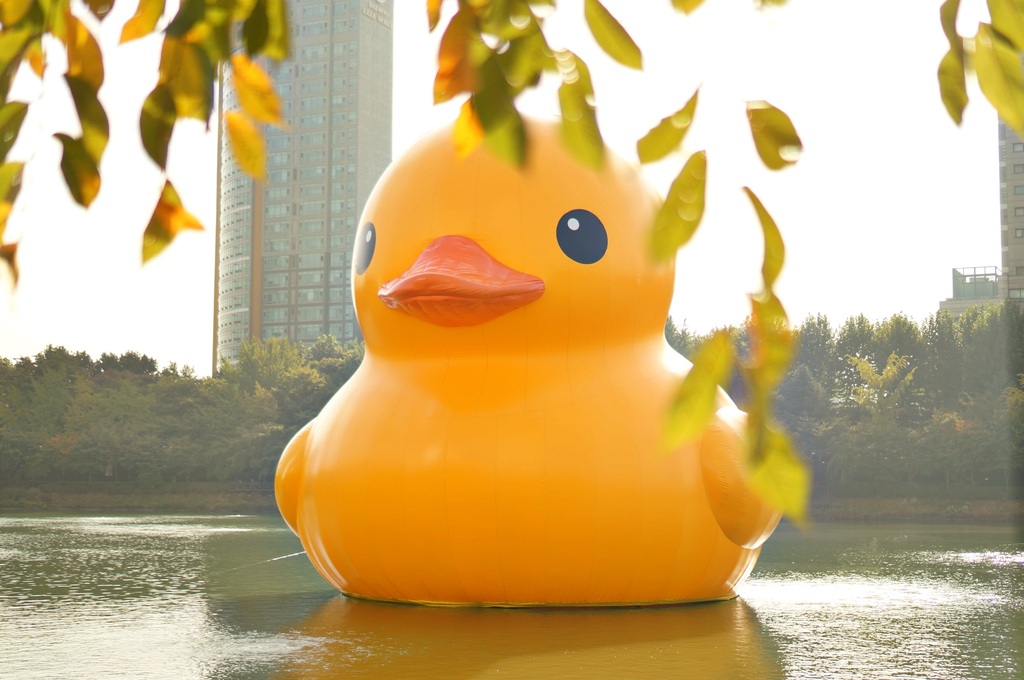
“Rubber Duck” is a series of giant floating sculptures designed by Dutch artist Florentijn Hofman.
It’s the benign, “blank slate” of the iconic figure that makes it so powerful, says Donovan Hohn, author of Moby Duck, a book about his experience chasing a flock of rubber ducks lost at sea after a shipping accident. Combine that with the fact that bright colors, smiling faces, and baby animals all “have the almost narcotic power to induce feelings of happiness in the human brain,” Hohn writes, and you have an effective and enduring platform for just about any message – even if it’s just, “Hey, I like your Jeep!”
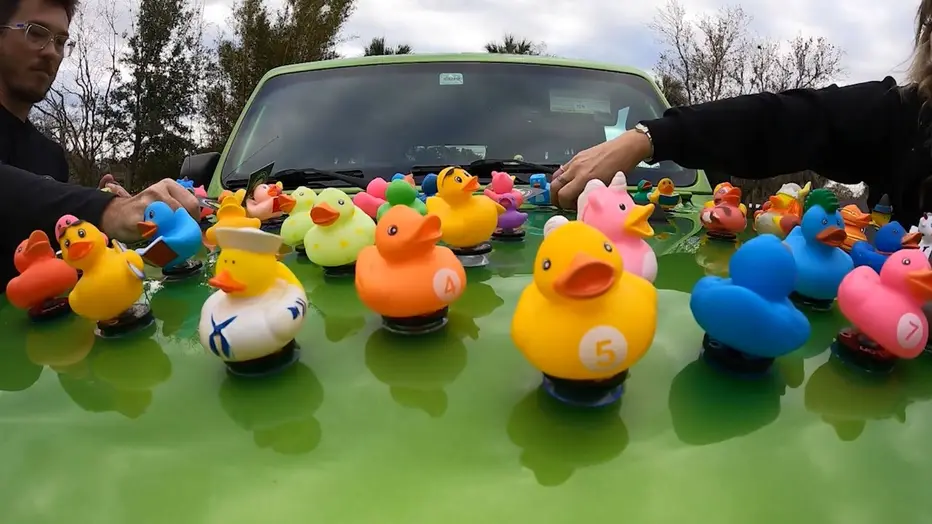
Jeep ducking. Via Fox 35 Orlando.
Wait, what?
Months into the pandemic in 2020, essential worker Allison Parliament was at a rest stop across the border in Ontario when a man shoved her into her Jeep and told her she wasn’t welcome in Canada. Even though Allison is a dual US/Canadian citizen, her car had US plates. The unsettling incident shook her up enough to keep her home for weeks after. Then one day, while at a local general store with a friend, she bought a bag of rubber ducks on a whim.
“It was nice to be out for a change,” Allison said, and the ducks – which she got to cheer up a friend – also made her laugh. When she left the store, she saw a Jeep like her own and had an idea. She wrote “Nice Jeep – Have a nice day!” on one of the ducks and left it for the owner.
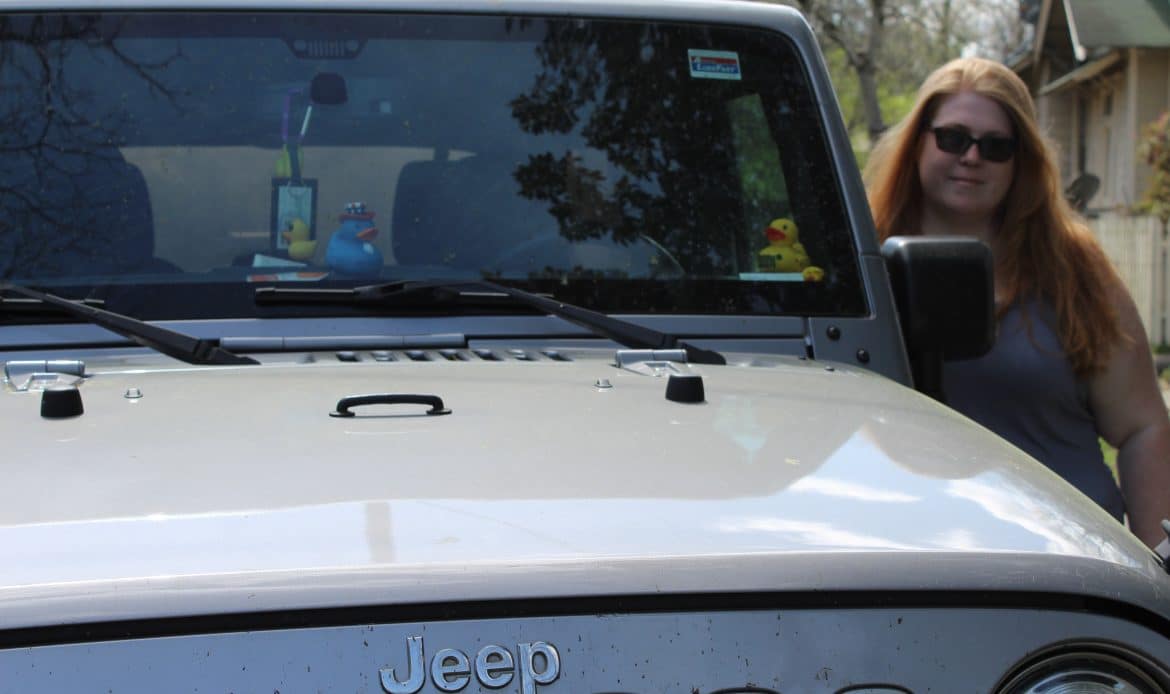
Allison Parliment started a ducking revolution in the Jeep community. Image via Elmore Autauga News.
Allison put a photo of the “Jeep ducking” on Instagram and it went viral. She and a friend started Official Ducking Jeep Est2020 on Facebook, and #DuckDuckJeep was born. The group currently has over 70,000 members, with thousands more in offshoot groups, and various “Jeep Ducking” hashtags across social media feature photos of every style of rubber duck on every kind of Jeep. The craze has swept through the US Jeep enthusiast community and beyond; those who participate are called “Duckers.”
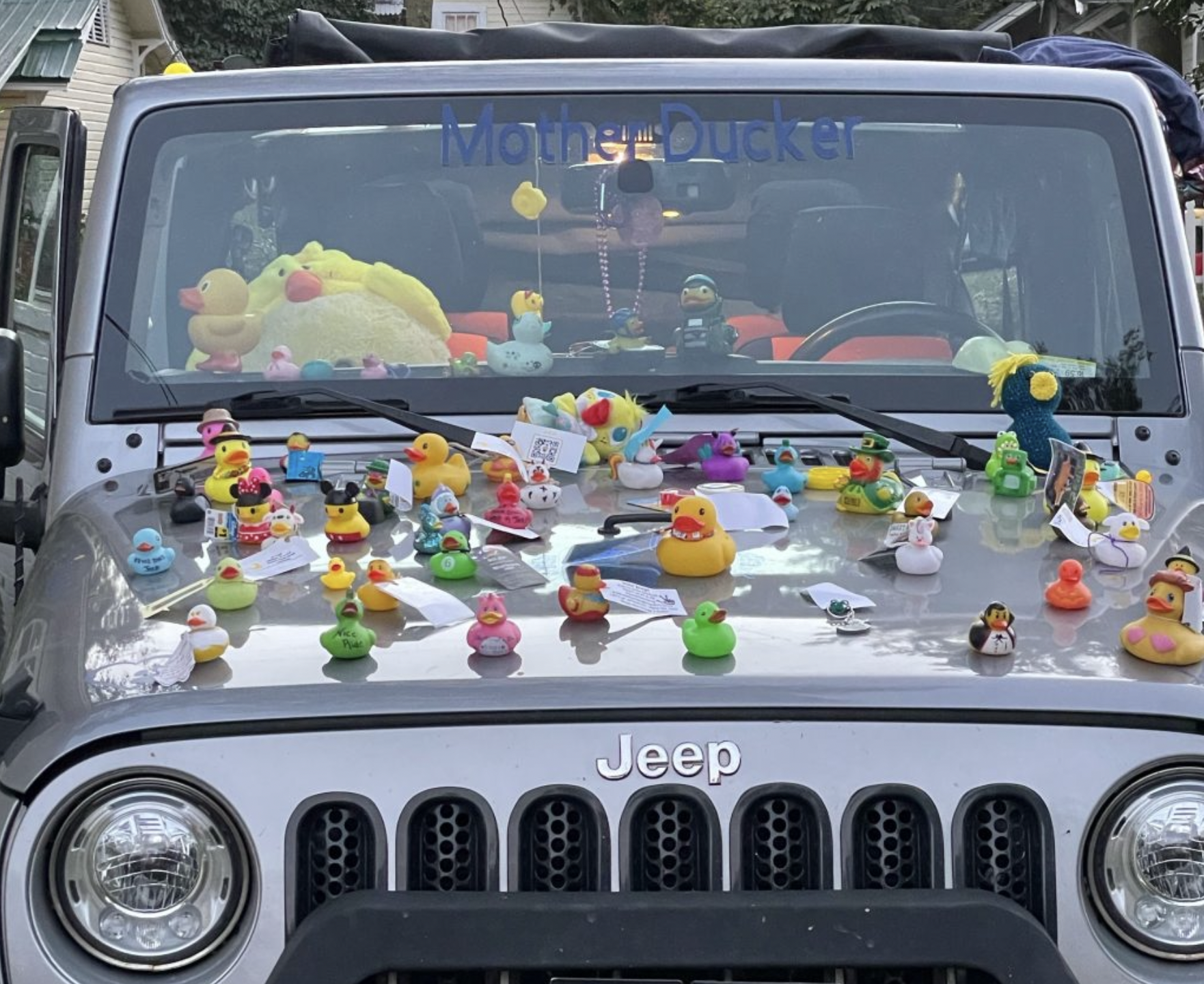
The “Duck Duck Jeep” phenomenon has even spurred charity events. Via Stellantis Blog.
According to MotorTrend, while the fad started with Wranglers, any Jeep is fair game for ducking. But Allison has a few guidelines: “There really are not any strict rules about how to duck someone’s Jeep, but the idea is to keep the act of ducking a Jeep within polite and noninvasive gestures.” Owners often display their ducks, so next time you see a Jeep, take a closer look at the dashboard. According to MotorTrend, owners call this a “duck pond,” with some collections “filling the dash from window to window, and then some.”
Allison, who is something of a celebrity in the Jeep community, estimates she’s given away nearly 10,000 ducks – and not only to Jeep owners. “If I see someone who looks like they are having a bad day, I’ll go grab a duck and try to make them laugh,” she says. “It’s easy to spread a little kindness.” Such is the power of the duck.
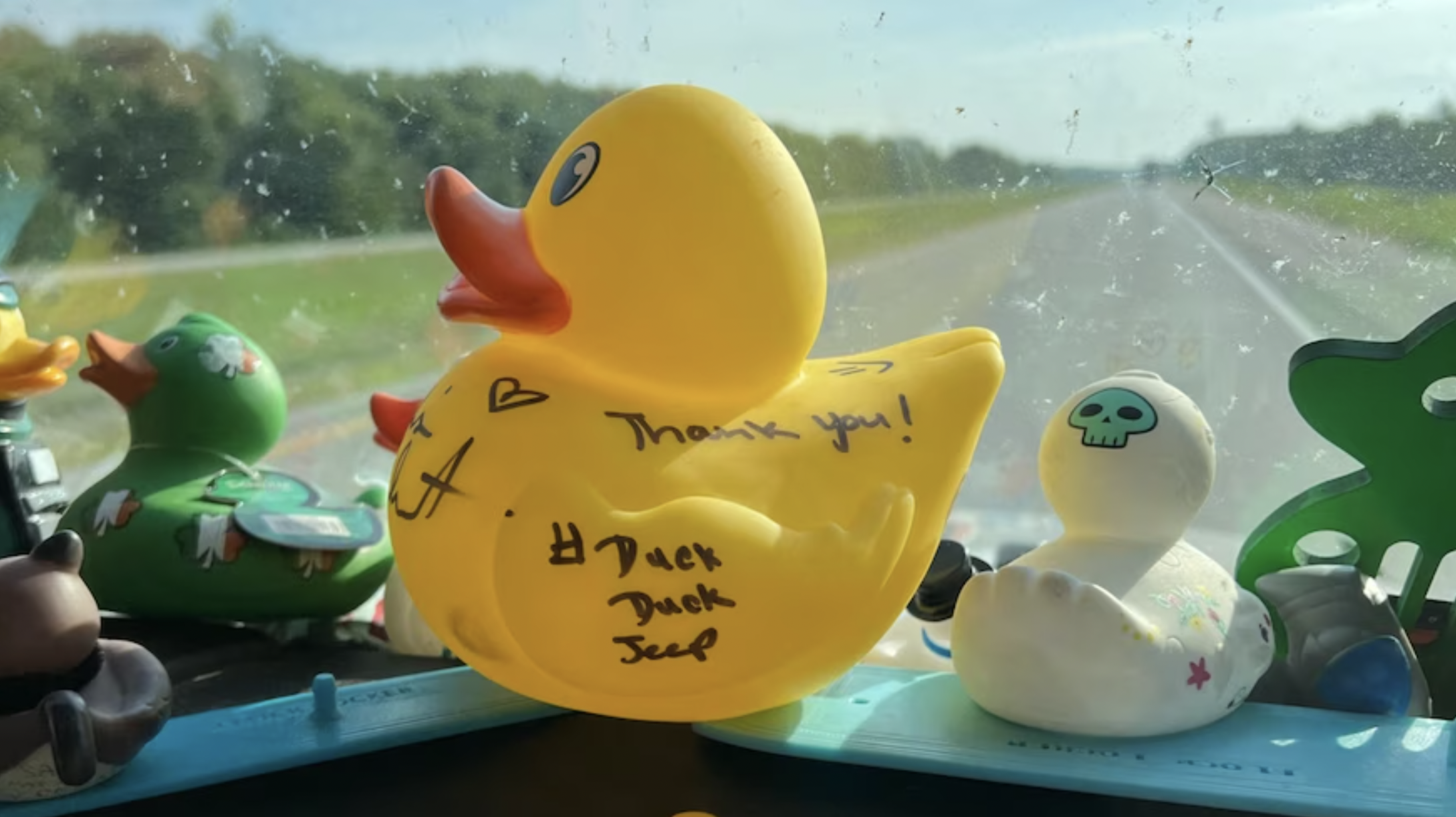
Courtesy of MotorTrend.
Apart from brightening people’s days, Jeep ducking has a charitable aspect. Allison’s Facebook group sponsors giveaways, raffles, and small grants to help teachers buy supplies for their classrooms.
Says Allison, “It’s humbling to know that one rubber duck could change the world.”
